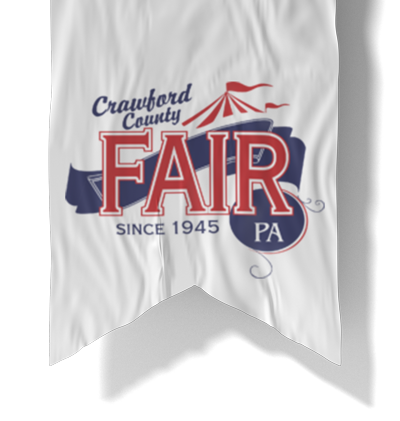Animal Health Requirements and Recommendations
All exhibitors must provide a copy of registration papers and a CVI (if applicable) to the Department Chairman at the time of check-in.
Entries will be accepted or rejected at the discretion of the Department Chair(s). Failure to follow the requirements for exhibition included in this Fair catalog may result in loss of Commonwealth funding, and animal testing and quarantine of animals at the exhibition by the Department.
See individual departments for Health Requirements and Recommendations
ANIMAL CHECK-IN INFORMATION (Departments 01-10)
All exhibitors must provide a copy of registration papers and CVI (if applicable) to the Department Chairmen at the time of check-in. Entries will be accepted or rejected at the discretion of the Department Chair(s).
Failure to follow the requirements for exhibition included in this Fair catalog may result in loss of Commonwealth funding, and animal testing and quarantine of animals at the exhibition by the Department.
- Tattoos, ear tags, and other forms of identification must be clean and readable.
- Do Not Unload Animals Prior to Visual Inspection.
- Check-in includes visual inspection of the animal(s) and the certificate of veterinary inspection (if applicable), and/or blood test forms.
- Dr. Scott Barzak (Fair Veterinarian) is the official Fair Veterinarian, hired by the Crawford County Fair Board. His decision to remove an animal from the grounds due to contagious disease or failure to provide necessary health charts/reports as set forth by the Crawford County Fair is final.
- Dr. Scott Barzak (Fair Veterinarian) is responsible for supervising the checking in of animals onto the Fairgrounds and has the final word on removal of animals from the grounds for health reasons. If any veterinarian, including the Fair Veterinarian, is needed for any other medical reason, you, as the exhibitor, are responsible for all treatment costs incurred.
- Please refer to the Respective Departments for Health Rules and Regulations governing each specific department.
- All livestock (beef, sheep, goats and swine) must enter the fairgrounds through Gate 6.
- Saddle horses must enter through Gate 2,
- Draft Horses must enter through Gate 3.
Check-in times are as follows, no exceptions without prior arrangements:
-
Draft Horses
-
-
Sunday, August 17 from 4 PM to 8 PM
-
Monday, August 18 from 12PM to 4 PM.
-
-
Saddle Horses
-
-
Friday, August 15 from 10 AM to 7 PM
-
Saturday, August 16 from 9 AM to 6 PM (for those stalled in the Race Horse barn area, the Department Committee will contact you and post specific times for check in.)
-
-
Companion, Production Does, & Market Goats
-
-
Saturday, August 16 from 8 AM to 12 PM
-
Saturday, August 16 from 2 PM to 6 PM
-
-
Dairy Cattle
-
-
Saturday, August 16 from 1 PM to 9 PM
-
Sunday, August 17 from 9 AM to 7 PM (Except 4-H Dairy Cattle 3 PM & 4-H Dairy Beef 3 PM)
-
-
Beef Cattle
-
-
Saturday, August 16 from 8 AM to 12 PM
-
Saturday, August 16 from 2 PM to 6 PM
-
-
Sheep
-
-
Saturday, August 16 from 8 AM to 12 PM
-
Saturday, August 16 from 2 PM to 6 PM
-
-
Swine
-
- Saturday, August 16 from 8 AM to 11 AM
- Saturday, August 16 from 6:30 PM to 9 PM
-
Dairy Goats
-
- Saturday, August 16 from 10 AM to 5 PM
- Sunday, August 17 from 12 PM to 5 PM
-
Rabbits & Cavies
-
-
Saturday, August 16 from 11 AM to 6 PM (All exhibitors)
-
Sunday, August 17 from 8 AM to 10 AM (Doe & litter and meat rabbits only from 8 AM to 10 AM, unless checked on on Saturday.)
-
-
Poultry
-
-
Saturday, August 16 from 10 AM to 3 PM for 4-H & FFA Exhibition Poultry
-
Sunday, August 17 from 10 AM to 7 PM Open Exhibition Poultry
- Monday, August 18 from 9 AM to 12 PM Open Exhibition Poultry
-
Thursday, August 21 at 8 AM 4-H/FFA Market Poultry
-
IMPORTANT: ALL HEALTH PAPERS MUST BE CHECKED BEFORE UNLOADING.
Livestock Weigh-ins
-
Market Goats
-
Sunday, August 17 at 2:30 PM in the Livestock Complex.
-
Market Sheep
-
Sunday, August 17 at 2:00 PM in the Livestock Complex.
-
Market Swine
-
Animals will be weighed after being unloaded from the trailer in the Livestock Complex on Saturday, August 16th, 2025.
-
Market Beef
-
Sunday, August 17 at 1:00 PM in the Livestock Complex.
-
Dairy Beef
-
Sunday, August 17 at 3:00 PM in the Livestock Complex.
RELEASE INFORMATION
Animals must remain on the fairgrounds until 8 PM on Saturday, August 23, 2025.
RETURNING ANIMALS TO YOUR HERD
Any animals that are returning to your herd should be isolated from other animals for 30 days. This will allow time for any symptoms to surface. Use of proper biosecurity protocols is recommended.




